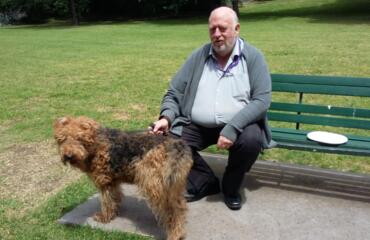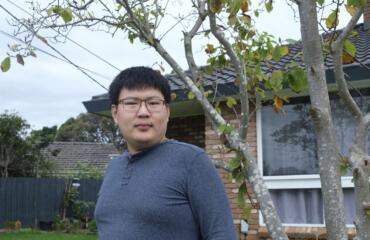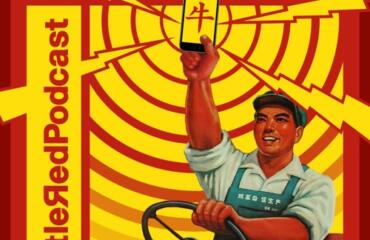Melbourne is growing at a rate unseen since the gold rush, but it’s feeling rather less marvelous than the accounts of that fabled era. Strategies for tackling the growing pains of an exploding metropolis on the city’s heart have preoccupied candidates in the crowded race to become the city’s next lord mayor.
Polls close at 6pm tonight in the ballot to decide who will succeed Robert Doyle, whose decade-long reign ended prematurely and ignobly amid allegations of sexual harassment. Those entitled to a vote are residents of the CBD and of inner city neighbourhoods (Docklands, Carlton, North Melbourne, Kensington and Parkville), outsiders who own property in the city and business owners.

The apparent frontrunner, Sally Capp, the former head of both the Committee for Melbourne and the Property Council, is proposing creating some breathing space with a massive new cross-city park. Capp is well connected in the business community, and because around 60 per cent of the voter role is made up of business owners and property owners don’t live in the city, this gives her prospects a substantial boost – assuming they exercise their votes.
Rohan Leppert, the fairly pragmatic Greens candidate and councillor, wants big changes to the city’s housing regulations. His party controls the federal and state seat of Melbourne, so he has a solid base, but getting the business support to reach a winning majority will be another matter.
Well-connected businessman and former councillor Ken Ong wants to look at closing Elizabeth Street, and also at shaking up the city’s approach to garbage.
Jennifer Yang, a businesswoman and former mayor in eastern-suburban Manningham Council, rounds out the field of those candidates that analysts seem to think are in with a shot.
But there’s a whole lot more in the running, among them former lord mayor Allan Watson, broadcaster Sally Warhaft, and perennial candidate and pollster Gary Morgan. They would appear to be the underdogs, but the race is wide open.
The open secret is that unlike in New York, London, Paris or even Brisbane, Melbourne’s lord mayor only has limited powers. “If anyone who’s running for lord mayor believed that if he or she (wins), they could just make things happen, it’s impossible.
“The city of Melbourne and the role of the lord mayor, it’s not that powerful,” Ong observes.
Not only are the city’s powers constrained by other levels of government, but any successful candidate will have to rely on a council that has a majority of former Team Doyle councillors. Tthe grandly titled position may be coveted and highly visible, but the realpolitik turns on the capacity of the incumbent to rally support to get anything done.
While the latter suffered a very public downfall, John So and Robert Doyle were larger than life lord mayors who at their peak enjoyed massive popularity. The question remains as to whether any of the 2018 candidates will be able to fill that power vacuum.
Lawrence Money, a longtime columnist who kept a close watch on city hall for many years, says that in many ways, “they’re an unremarkable bunch”. But whoever gets the gig will, at least nominally, be at the helm through a remarkable and critical period in Melbourne’s evolution.
At present, all roads lead to the inner city – literally. The CBD sits at the heart of the radial public transport network and many of the key roads. It’s the major dot on the map commercially, culturally and environmentally.
“We need to do a lot more around public transport, and until we do that, it’s really hard to take action on the other elements of infrastructure,” Capp argues.
But the lord mayor isn’t elected by greater Melbourne. And those residents who are entitled to vote have their own local concerns, in particular the squeeze on schools and open spaces.
That’s why Capp is proposing her major new “High Line”-style park (à la New York) and Ong potential street closures.
“Cars driving by don’t shop, people walking shop and spend money,” Ong says. He thinks if these issues aren’t solved, some residents might start moving out of the city, undoing years of effort in luring people into the city. “If we don’t have the facilities for childcare and for schools, soon they will leave.”
Leppert, the wonkish Greens councillor, wants to shift the rules more broadly to drive change. He sees changing regulations on developers and planning as key to community sustainability.
“We should be doing a lot more in Melbourne to shift our development culture so that we’re valuing the longer term benefits of the development, not only the shorter term profits of developers,” he says.
Amidst these big proposals, the candidates are trying to appeal to all corners. Capp is a former Liberal party member with a background in the big end of town, but she’s spruiking her record on supporting climate change action and open spaces.
“It’s been a long time since we’ve had a lord mayor that’s been impatient to change the rules as quickly as I’m proposing,” says Leppert. But in contrast to the outsider approach many elected Greens take, he’s also running as someone who can work with the current business-friendly council majority.
“We need someone who understands the current council dynamics,” he declares.
It’s an aspiration far removed from the dynamics of what Lawrence Money was fond of calling “Clown Hall”, with the gold chain of the mayoralty, he says, “a sort of trophy position they used to pass on from councillor to councillor”.
The change reflects a city evolving and growing at a spectacular rate, serving a sprawling wider metropolis expected to hit a population of 5 million next month.
“I didn’t appreciate how aspirational we are for people overseas,” says Capp, who says she learnt to appreciate that as Victoria’s trade representative in London. And with the city such a big attraction for new residents, the council’s role is critical.
“This is a critical point in our development as a city.”
If you are enrolled to vote but are yet to cast your ballot, hurry! Your only remaining option is to brave the blizzard and vote in person before the deadline. Postal votes will be counted from Monday until noon next Friday, May 18. The result is expected to be announced by May 22.



